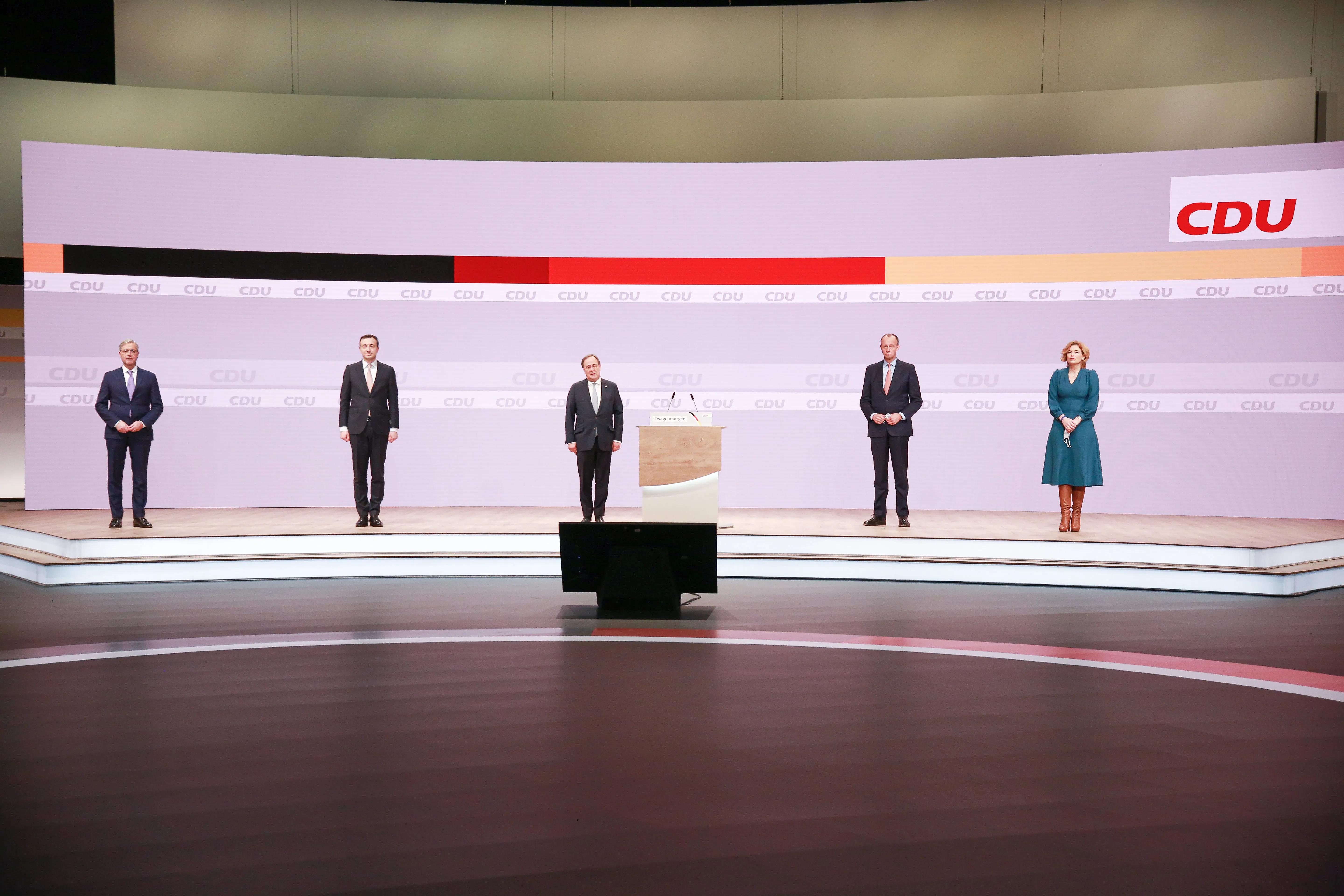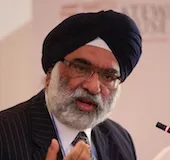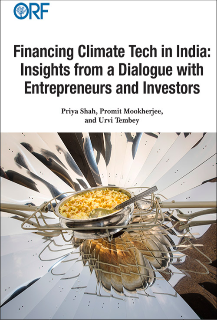
This time, the election of a new president of the German Christian Democratic Union (CDU) has caused more interest as it marks the end of the term of Chancellor Angela Merkel to lead Germany. Armin Laschet was elected after two rounds of voting, beating the more radical candidate, Friedrich Merz and the foreign policy expert, Norbert Röttgen. The void created by the resignation of Annegret Kramp-Karrenbauer (AKK) on the eve of the pandemic had shocked the party. She was the designated successor to Merkel but could not carry the party with her.
Laschet does not directly succeed Merkel in the party but is in the pole position to be the candidate for chancellorship after the federal elections in September 2021. Rarely has the party separated the chairmanship from the chancellery and the Merkel era confirmed this. All eyes are on Armin Laschet to analyse his potential as a healer and unifier of the CDU. Most see him as a true ‘Merkelianer’, adept at cementing rather than creating friction.The soul of the CDU is now reposed in his hands. Like Merkel, no one is quite sure what exactly he stands for but that it could be what most people like.
Laschet and his two rivals all come from the same region of North Rhine-Westphalia (NRW), which along with being Germany’s largest state is also among the more industrialised ones. Its politics and importance can be understood if one sees the role of Uttar Pradesh in Indian politics. It has not always been the provider of leaders but now it is in an important position.
Laschet is credited with establishing the CDU in NRW by winning it in 2017 after Röttgen had failed to do so in 2012. He successfully led a coalition with the Free Democrats, something which did not succeed at the federal level later that year. If the CDU is looking for a united party with a clear centrist position, and to separate from its long-term coalition with the Social Democratic Party (SPD), then Laschet is the person who represents a continuity of Merkelism. His pragmatic and elastic approach would not take the party to an extreme like Merz suggested.
Not only has Laschet run Germany’s largest region since 2017, but early in his career he was an MP from 1994-1998 and then spent several years as a member of the European Parliament (1999-2005). His domestic experience is long and varied but his foreign affairs view is from his days in the European Parliament (EP). He was in the EP Foreign Affairs Committee from 2002-2005. He is seen as committed to the European project and its goals in the Merkel mould. Laschet had good relations with NRW’s neighbouring provinces of Belgium and Holland showing an ability for practical co-operation among European partners. He has been friendly to immigrants; supported Merkel’s 2015 open-door refugee policy, earning him the moniker of ‘Turkish Armin’ for this trait.
However, Laschet’s shot as the chancellor is not yet clear. He will have to hold the party together and ensure that the positive momentum that Merkel has brought back to the CDU with her handling of the pandemic is maintained. He will have to see that the popularity is mentored under him before the federal elections in September. There are three earlier elections which would determine this.
In March, the large and important province of Baden-Württemberg will go to the polls as will Rhineland-Platinate. In June, Saxony-Anhalt will also go to the polls and these three would be the determinants since Thuringia has decided to postpone elections and hold them alongside the federal election.
While the SPD is the party running the Rhineland-Platinate region, the CDU is a partner in the governments in Baden-Württemberg and Saxony-Anhalt and would need a consistent enhancement of its vote share to prove the success of Laschet’s leadership. It needs to take back its vote share from the Greens and the right-wing Alternative For Germany (Alternative für Deutschland, AfD) which is now under State scrutiny for constitutional violations.
While the SPD is the party running the Rhineland-Platinate region, the CDU is a partner in the governments in Baden-Württemberg and Saxony-Anhalt and would need a consistent enhancement of its vote share to prove the success of Laschet’s leadership
With Laschet’s election, the CDU leadership moves back to West Germany after 16 years of Merkel’s leadership. She had a distinct smaller region flavour as she came from Mecklenburg in East Germany. She never ran the regional government but took over the reins of the party through her standing in the Bundestag. Laschet is a state politician who owes his ascent not to his time in Parliament, but to his conduct as Minister President of the NRW. Even AKK had been running Saarland before becoming the CDU President. Laschet is a Catholic like AKK, unlike Merkel who is a Lutheran Protestant.
Besides the Merkel legacy, Laschet inherits the party during the pandemic, which is getting worse and currently Germany is under stiff lockdown till mid-February. Over 50,000 people have died due to COVID-19 while the chancellor has predicted that Germany will emerge from the economic downturn with a growth of 3.5 percent in 2021; however, its unemployment rate will continue to be 4%. Interlocutors from Mittlestand in Germany have said that they are distraught due to curtailed manufacturing and services. Laschet would need to have a panacea for the health and economic downturn while riding on Merkel’s popularity. So far, he has the support of the ambitious Health Minister, Jens Spahn, who has become the public face for dealing with the pandemic. His support was vital for Laschet to beat Merz in the second round of voting at the CDU convention. Spahn is frequently mentioned as a chancellor candidate despite his current support. Spahn is the Vice President of the CDU but presently with low support. The Bild suggests that Laschet’s strength lies in his being underestimated.
The popularity of the leader of the Christian Socialist Union, the CDU’s sister party in Bavaria, is another source of uncertainty. The State Premier, Markus Soder, is popular and has high ratings in the polls. He could be a contender for the CDU/CSU coalition leadership in the parliament but would need to be acceptable to the CDU members of the Bundestag and partners after the elections.
Interestingly, several CDU members from different regions told this author that while Laschet was the best bet for the CDU for now, the best choice for Chancellor of Germany would be the CSU’s Soder. This is suggesting an unprecedented option. This is possible if the CDU/ CSU coalition gets a majority without too much dependence on the Greens or the Free Democrats. They would need to keep the SPD in opposition for its own good. A weak CDU/CSU showing the need for a larger coalition will certainly not let CSU take centre stage. Laschet has an older ‘pizza connection’ with the Greens.
In the current international situation, Laschet would like to continue with Merkel’s foreign policy. If he does not have to provide the Foreign Ministry to an ally, which has become the tradition, then his rival, Norbert Röttgen, could be the Foreign Minister with Merz anticipated to play an economic role in the cabinet after the elections. Laschet’s view of the world would be conditioned by his constituency of the NRW and thus, he is likely to be not one who shakes the foundations of what is going on but would like to be amiable, jostling at times but consistent in policy ahead.
In the current international situation, Laschet would like to continue with Merkel’s foreign policy. If he does not have to provide the Foreign Ministry to an ally, which has become the tradition, then his rival, Norbert Röttgen, could be the Foreign Minister with Merz anticipated to play an economic role in the cabinet after the elections
He would like a good relationship with the new Biden Administration in the US. They would be welcomed back into the climate change context. He would also like to promote Transatlantic relations. Yet, regarding Russia and China, economics will dominate. The benefits of the new Comprehensive Agreement on Investments (CAI) will be sought as NRW has over 1,400 Chinese companies operating there. There are 5,000 German investors in China. The Chinese long-distance trains which come across Russia and Central Europe arrive in Duisburg, the largest inland container depot in Germany. These realities will determine his approach to China.
With Russia, he would like to remain committed to the completion of the Nord Stream 2 gas pipeline despite various difficulties and, if pushed, will at best agree to a delay in its implementation rather than its cancellation. The EU parliament’s call for its termination for political sanctions will be troublesome for him.
In other areas like Asia, the Indo-Pacific, the Middle East, and Iran, Laschet is likely to defer to the Foreign Minister and the common European position in coordination with France. With the departure of Merkel, we are likely to see a larger role being played by Ursula von der Leyen, the EU chairperson. She and Laschet were together elected CDU Vice Chairperson in 2012. Laschet has apparently never been to India or has had much of an India connection. There will be much work to do on this front. It is worth seeing if Chancellor Merkel includes him in the German delegation for the intergovernmental talks to be held this year even though he is not in the Cabinet.
The views expressed above belong to the author(s). ORF research and analyses now available on Telegram! Click here to access our curated content — blogs, longforms and interviews.




 PREV
PREV


